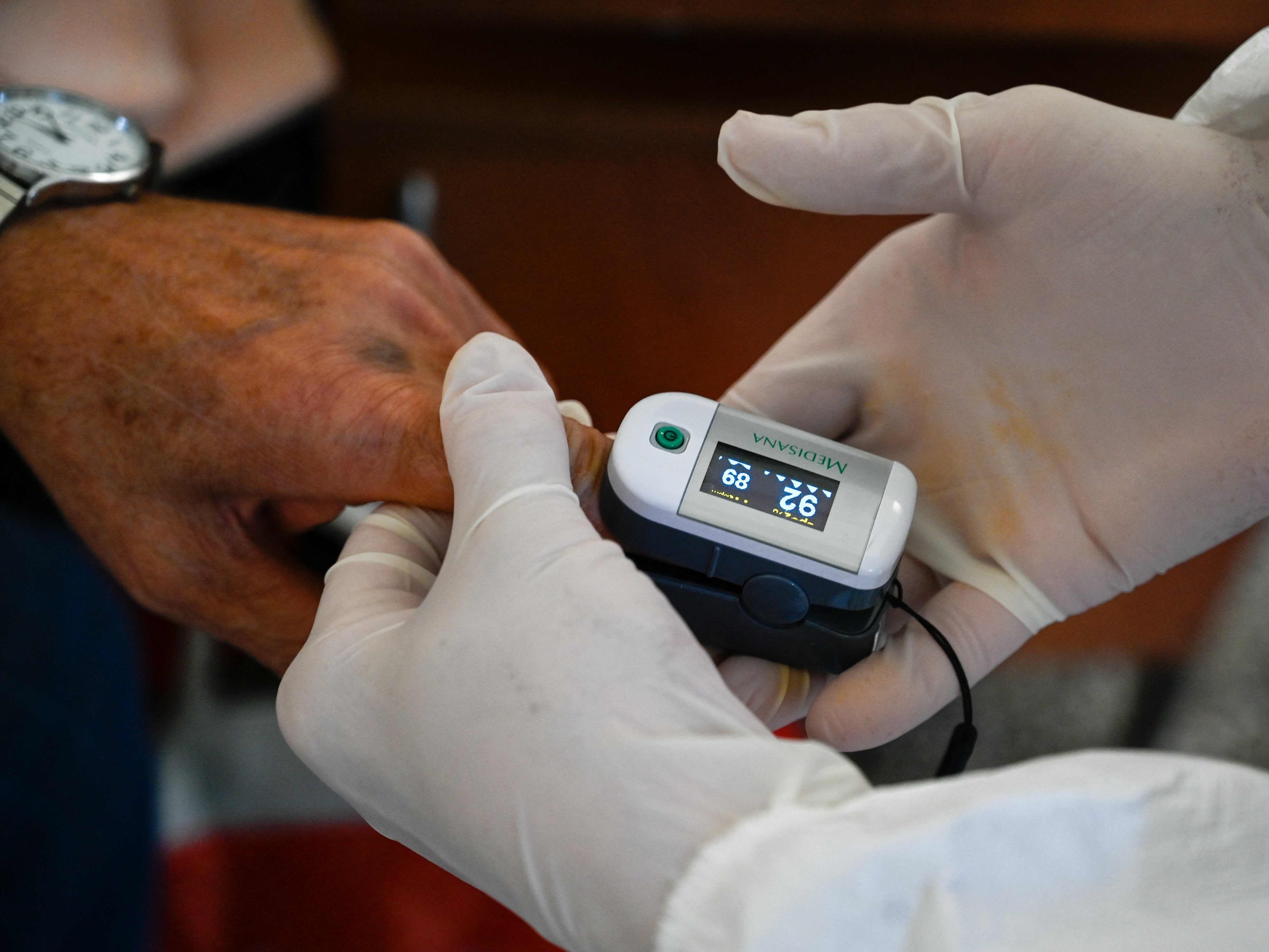Covid patient died in hospital side room after breathing tube disconnected and calls for help went unanswered
Nurses were treating 10 patients each at time of incident, official investigation finds

Your support helps us to tell the story
From reproductive rights to climate change to Big Tech, The Independent is on the ground when the story is developing. Whether it's investigating the financials of Elon Musk's pro-Trump PAC or producing our latest documentary, 'The A Word', which shines a light on the American women fighting for reproductive rights, we know how important it is to parse out the facts from the messaging.
At such a critical moment in US history, we need reporters on the ground. Your donation allows us to keep sending journalists to speak to both sides of the story.
The Independent is trusted by Americans across the entire political spectrum. And unlike many other quality news outlets, we choose not to lock Americans out of our reporting and analysis with paywalls. We believe quality journalism should be available to everyone, paid for by those who can afford it.
Your support makes all the difference.A pensioner died alone in a hospital side room after his breathing tube became detached and his appeals for help went unanswered.
The 73-year-old man, identified only as Terry, was admitted to hospital with coronavirus in December 2020, the Healthcare Safety Investigation Branch (HSIB) said.
The married father of six was given oxygen but levels of the gas in his blood repeatedly dropped below correct levels, so medics attached a breathing machine called a CPAP. The device produces positive pressure through a tube and mask, but is non-invasive.
He was placed in a side room off a ward because the CPAP process can pump respiratory particles into the air, meaning Terry had to be isolated from other patients to avoid spreading Covid-19. He was regularly visited by nurses.
However, at about 8pm on his second day in hospital, Terry used his call bell to ask for help. In its report, the HSIB said: “The ward was extremely busy at this time because of a staff shortage, coupled with competing clinical priorities and a new patient arriving on the ward with more admissions expected.
“A nurse was putting on her personal protective equipment ready to enter Terry’s room and looked through the observation window. She could see Terry lying unmoving on the floor with his head under the bed.
“The CPAP machine and other alarms, which would normally alert staff to a potential problem, could not be heard outside of the side room.”
Terry’s breathing tube had become disconnected, though his mask was still on. He could not be resuscitated.
At the time nurses on Terry’s ward had been treating 10 patients each, the investigation found.
The HSIB said: “The sheer number of patients with Covid-19 needing respiratory support meant the NHS had to adapt and make the best use of their space and resources to meet the demand and minimise the risk of spread of infection.”
It has now ruled that placing CPAP patients in side rooms is dangerous, and reproduced advice for hospitals based on guidance from the Intensive Care Society, the British Thoracic Society and others.
Staff caring for patients with Covid-19 requiring CPAP on general wards need training and competency assessment to feel confident in delivering care, investigators said, and hospitals should establish “respiratory support units” where nurses are treating no more than four patients at a time.
Bosses must review their policies about providing this kind of treatment and whether they have the capability to monitor alarms properly, according to the report.
The HSIB did not name the hospital in Terry’s case.
Join our commenting forum
Join thought-provoking conversations, follow other Independent readers and see their replies
Comments